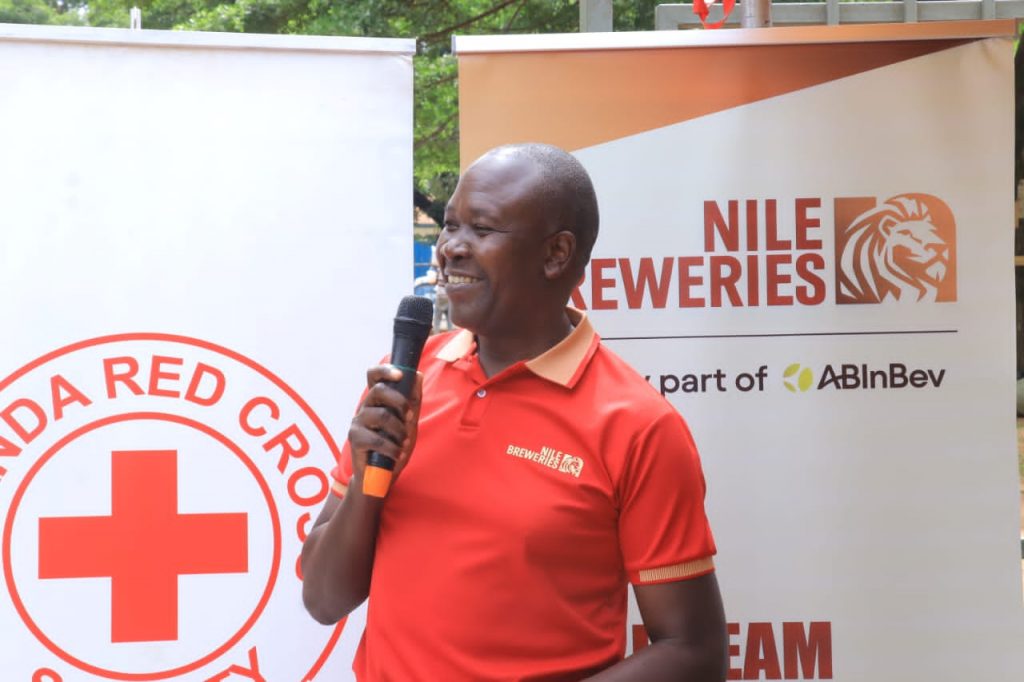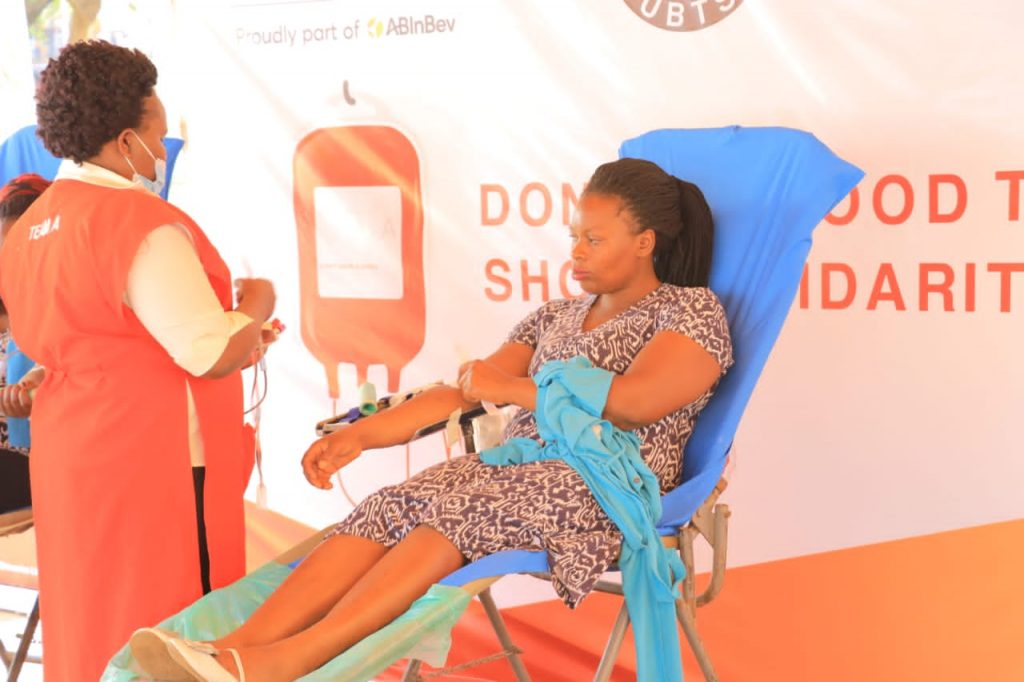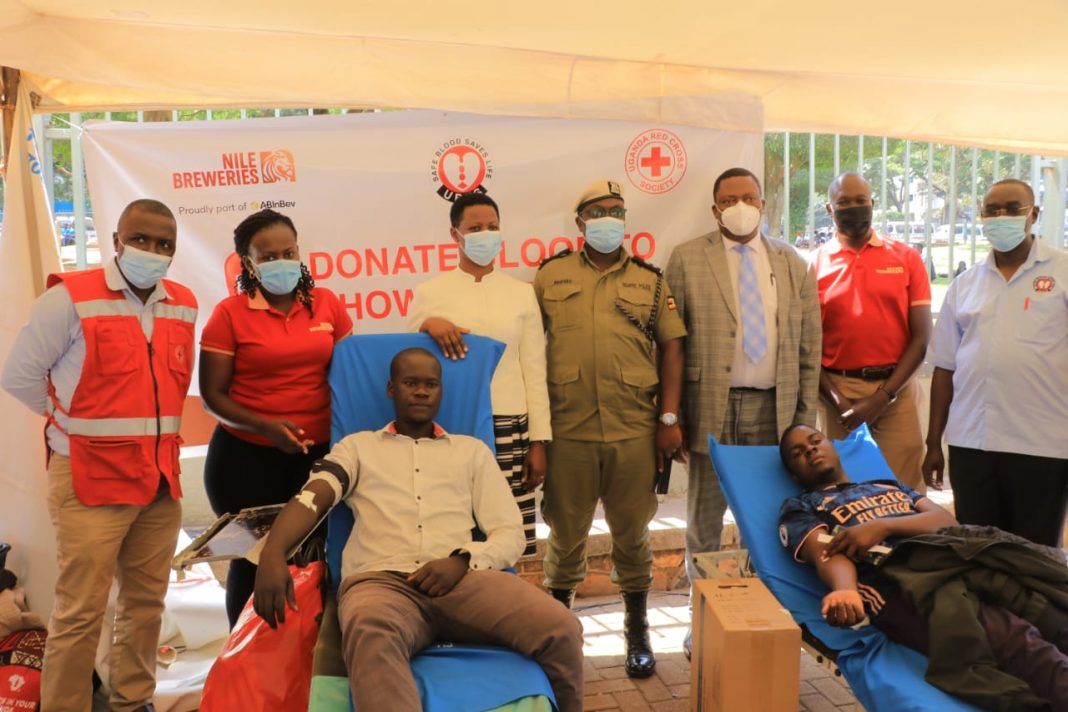Nile Breweries Limited (NBL), Uganda’s beer market leader, has starting today teamed up with Uganda Red Cross Society (URCS) to mobilize 800 units of blood over a 3-day period in Kampala, Jinja and Mbarara districts.
Uganda is mandated to raise 1% of the country’s total population in form of blood units as per global standards (WHO guidelines). The country which has 40 million people so requires 400,000 units of blood annually to meet the blood needs of the country. However, due to several factors, many times Uganda doesn’t meet this requirement.
“Through an MOU with Ministry of Health, URCS, working closely with Uganda Blood Transfusion Services (UBTS), is mandated to carry out blood donor recruitment and mobilization countrywide,” said Dr Okwera Josephine, the Director Health and Social Services, URCS while officiating at the blood mobilization drive at City Square in Kampala. Other locations in Kampala included Nakero Market and New Taxi Park.
“Having partners such as NBL join the blood mobilization drive reassures our commitment to partnerships that bring lasting social value for the wellbeing of communities we serve,” she added.
Onapito Ekomoloit, the Legal and Corporate Affairs Director Nile Breweries. Limited, reaffirmed the company commitment to support life-saving and improving initiatives, such as blood donation.
“Our dream is to create a future with more cheers,” Onapito said.

“This means working with governments, law enforcement, public safety organizations, academia, other companies, and civil society to enable a sustainable future for communities and improve their lives,” he said.
“We focus on empowering local communities with information, skills and life improvement tools, of which mobilizing blood to save more lives is one of them, and we are pleased to partner with URCS, UBTS and Uganda Traffic Police in this noble cause,” Onapito said.
NBL will also donate a bar of soap to each blood donor at all the locations to assist in promoting hygiene, amid the high commodity prices.
Onapito also revealed that the blood donation campaign would enable the company draw attention to road safety during this period, since accident victims have been identified as among patients needing blood most.
Uganda Traffic Police statistics show 118 people were killed in road crashes between April 24 and May 4 this year alone.
“In response to the call to the Second Decade of Action for Road Safety from the United Nations, our mother company, ABInBev has put in motion plans and actions to improve road safety around the world,” Onapito said.
“We want to help achieve the goal of reducing road traffic deaths and injuries by at least 50 per cent between 2021 – 2030,” he said.

This donation drive, in commemoration of World Blood Donor Day 2022 is themed “Donating blood is an act of solidarity. Join the effort and save lives” which aims to draw attention to the roles that voluntary blood donations play in saving lives and enhancing solidarity within communities.
URCS in partnership with UBTS launched a blood donor recruitment strategy in 2020 where the URCS committed resources including its volunteer network to donate, mobilize blood and take blood to the community level, as well as bringing more partners on board to compliment the efforts.

Dr Okwera highlighted that URCS continues to broaden its base of blood donors in the community through its members, volunteers, partnerships with cultural institutions and corporate organizations. This has led to a significant increase in the amount of blood mobilized, even during the school closure for about 2 years (2020-2021) to curb the spread of COVID-19.
In 2021 alone, out of the 152,891 units mobilized by URCS, 29,982 (20%) were from schools/institutions while 122,909 (80%) were from the community.
On her part, Dr. Dorothy Kyeyune the Executive Director Uganda Blood Transfusion Services (UBTS) said blood and blood products are essential resources for effective management of patients requiring special care.
“These include women suffering from bleeding associated with pregnancy and childbirth; children suffering from severe anemia due to malaria and malnutrition; patients with blood and bone marrow disorders, inherited disorders of haemoglobin and immune deficiency conditions, victims of trauma(accidents); as well as patients undergoing advanced medical and surgical procedures, “ she said.























